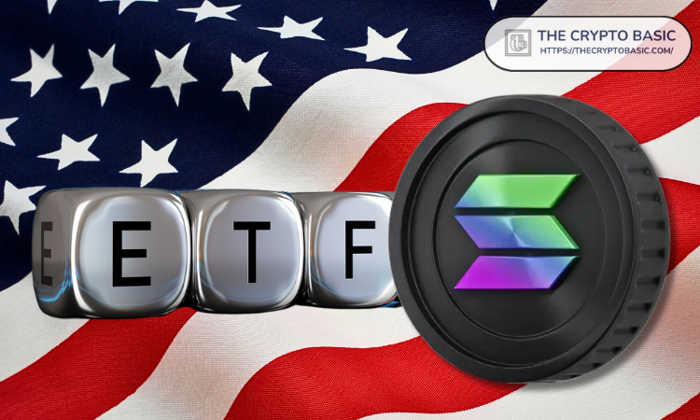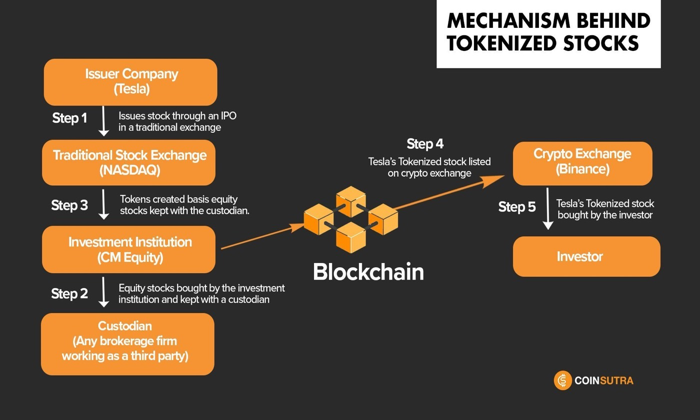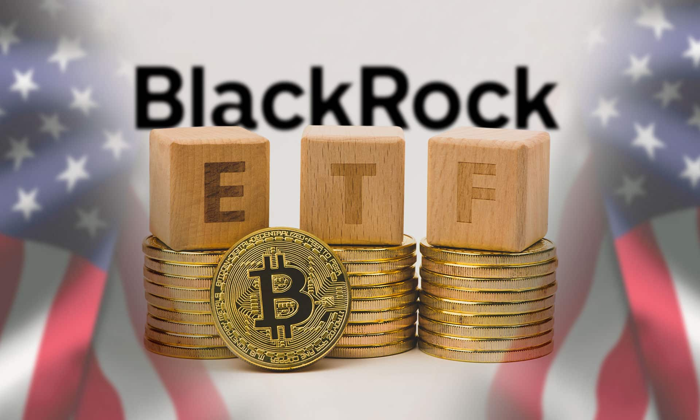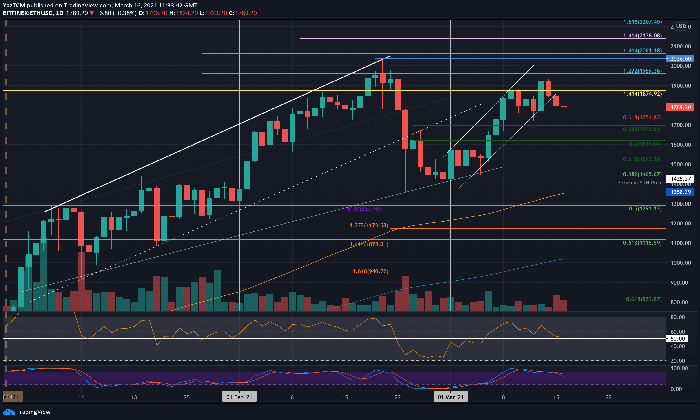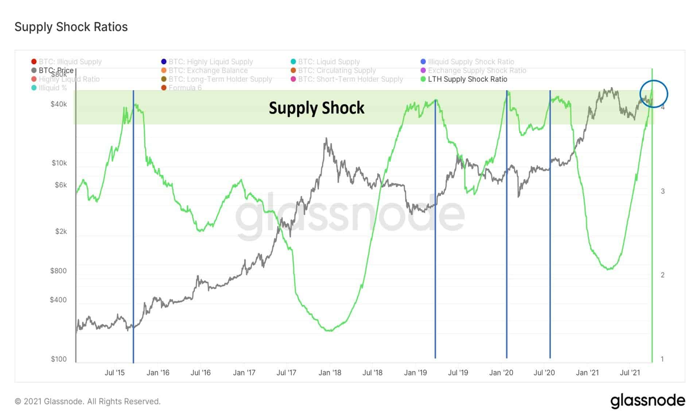In recent SEC Solana ETF news, the registration amendment for a Solana ETF has sparked significant interest in the crypto market, especially as staked ETFs are considered for approval. With Solana (SOL) priced at $155.22 and Ether (ETH) at $2,511, the potential for these investment vehicles to reshape the landscape of cryptocurrency trading is immense. However, the SEC’s concerns regarding the c-corporation structure of these funds could hinder their qualification as traditional ETFs, raising questions about investment company regulations. This development has drawn attention from investors eager to understand the implications for crypto market liquidity in light of ETH ETF concerns. As discussions unfold, analysts remain optimistic that a path forward can be found for these pioneering ETFs within the frameworks established by the Investment Company Act.
Recently, there has been a buzz surrounding the registration of a Solana-tracking exchange-traded fund, highlighting the evolving dynamics of crypto investments. With a focus on staked ETFs and their potential impact on market liquidity, stakeholders are anxiously waiting for regulatory approvals from the SEC. This situation is made particularly interesting as it not only involves Solana but also stems from wider conversations about altcoin ETFs and their acceptance within traditional financial frameworks. Investors are closely monitoring these developments, especially in relation to how the SEC’s decisions might influence broader crypto investment sentiments. It is clear that the emergence of these alternative funding structures poses both opportunities and challenges in navigating compliance with established investment regulations.
Understanding the SEC’s Stance on Solana ETF Registration
The decision by the Securities and Exchange Commission (SEC) regarding the registration amendment for the Solana ETF has raised significant questions in the crypto community. At the center of this controversy is the SEC’s concern over the use of a c-corporation structure for the proposed ETFs by REX Financial and Osprey Funds. This structure is not typical for ETFs and may violate the 6C-11 rule, which outlines permissible corporate frameworks for exchange-traded funds. The SEC’s firm inquiry into whether these funds can be classified as ‘investment companies’ under the Investment Company Act signals serious regulatory scrutiny. These developments are critical as they impact investor confidence in the crypto market, especially concerning altcoins like Solana and staking opportunities that are gaining traction amongst investors.
Moreover, the SEC’s cautious approach underscores the need for clarity in the rapidly evolving landscape of cryptocurrency investments. The acknowledgement of potentially misleading disclosures in the registration statement reflects a commitment to protecting investors while urging issuers to adhere strictly to regulatory standards. As discussions continue, many in the crypto sector are hopeful that a compromise will be reached, potentially paving the way for Solana ETFs and similar products to enter the market. Analysts argue that successful approval could signify a turning point for the crypto industry, ultimately leading to increased market liquidity and mainstream adoption of cryptographic assets.
Potential Roadblocks for Staked ETFs Approval
Despite the enthusiasm surrounding the establishment of staked ETFs, significant hurdles remain. The SEC’s recent letter suggests that the commission is not entirely convinced about the compliance of these funds with existing regulations. Analysts have noted that the SEC’s skepticism regarding the investment vehicles’ structures could delay approval, which has often been a commonplace experience for potential ETF issuers. For months, the crypto industry has awaited decisive action from regulators, especially when considering the favorable guidance around cryptocurrency staking. Therefore, the SEC’s indecision may disappoint many investors looking to capitalize on the growing popularity of staking within the cryptocurrency sector.
This lingering uncertainty can influence market liquidity, as hesitation from traditional investors is likely if these ETFs do not receive green lights from the SEC. If staked ETFs are eventually approved, they could unlock vast amounts of capital by attracting traditional investors keen on diversifying their portfolios with cryptocurrencies like Solana. This would ultimately enrich the crypto market by expanding its participant base and fostering greater trust in cryptocurrency as an investment vehicle. However, until the SEC resolves these questions, the potential roadblocks may continue to thwart progress toward standardizing staked ETF offerings.
Navigating ETH ETF Concerns in Light of SEC Decisions
As the SEC reviews Solana ETF registration, it simultaneously faces scrutiny over Ether (ETH) ETF applications. Concerns regarding the regulatory framework for ETH ETFs mirror the issues raised with Solana’s approval process. Investors and market analysts express worry that the SEC’s hesitance could lead to prolonged delays in approving these critical investment vehicles. Especially with the increasing popularity of staking, the regulatory landscape remains muddied. The SEC’s caution in vetting the legitimacy of these ETFs emphasizes the significant implications such decisions hold for investors and the overall crypto ecosystem.
Significantly, as the SEC considers these multifaceted concerns, the outlook for ETH ETFs remains uncertain. Continuous dialogues between ETF issuers and regulators highlight the dynamic nature of these negotiations. Should the SEC provide clarity, it may foster a more conducive environment for broader acceptance of ETH ETFs. Such a move could potentially reshape investor sentiment and enhance crypto market liquidity, thereby invigorating both Solana and Ether popularity as essential assets within diversified investment portfolios. The unfolding situation calls for keen observation from stakeholders eager to seize emerging opportunities post-regulatory decisions.
The Impact of Investment Company Act on Crypto ETFs
The Investment Company Act presents a fundamental regulatory framework that governs financial structures in the U.S., including ETFs traditionally. As the SEC examines both the Solana and Ether ETFs in light of this act, it becomes clear that compliance will be a crucial determinant of their approval. The unique business structures proposed by REX Financial and Osprey Funds may not only question the viability of these ETFs but also set a precedent for how similar offerings might be structured in the future. Consequently, ETF sponsors will likely be compelled to innovate around these existing limitations to meet regulatory expectations while appealing to new investors.
Additionally, the implications of the Investment Company Act extend beyond just compliance; they reflect the broader challenges facing the emerging crypto ETF market. As the crypto landscape evolves, navigating these regulations will require issuers to balance regulatory demands with the rapidly shifting dynamics of investor interest. Successful navigation of the Investment Company Act requirements could very well determine the trajectory for crypto ETFs and set a standard for future applications. Investors, thus, must stay informed about the regulatory climate as these developments unfold.
The Role of Crypto Market Liquidity in ETF Success
Liquidity in the crypto market is a key aspect influencing the success of ETFs, especially as new products like staked ETFs gain traction. The potential infusion of capital from traditional financial markets could radically enhance market liquidity, facilitating a smoother entry point for investors. As the SEC engages with ETF issuers like REX Financial and Osprey Funds over regulatory compliance, the prospect of attracting fresh liquidity is contingent on their ability to overcome current obstacles. Such liquidity is crucial not only for the stability of newly approved ETFs but also for the broader health of the cryptocurrency ecosystem.
Traditional investors typically seek reliable liquidity solutions before venturing into unfamiliar assets like cryptocurrencies. The eventual approval and success of staked ETFs would address many of these liquidity concerns, showcasing cryptocurrencies as viable investment opportunities. By facilitating the conversion of traditional investors into crypto participants, these ETFs could create a ripple effect, fostering trust and increased transactions within the crypto markets. As we await further SEC developments, the symbiotic relationship between market liquidity and ETF acceptance will remain a pivotal focus for investors and regulators alike.
Trends in Altcoin and Staking ETFs Market
The growing interest in altcoins and staking ETFs represents a significant shift in investor attitudes towards the crypto market. Despite ongoing struggles with regulatory approvals, market analysts sense a wave of optimism surrounding these emerging products. Investors are increasingly recognizing that altcoins, particularly those like Solana with inherent staking benefits, offer attractive returns that can enhance their portfolios. The SEC’s forthcoming decisions regarding these ETFs will play a vital role in shaping the future landscape of cryptocurrency investment, potentially augmenting the shift toward alternative digital assets.
Moreover, as regulators like the SEC develop clearer guidelines for altcoin and staking ETFs, we may see a more robust framework that legitimizes these products in the eyes of investors. Enhanced transparency and regulatory compliance can drastically increase market participation, drawing both retail and institutional investors into the crypto space. The continued push for clarity from the SEC indicates a responsiveness to market demands, paving the way for a new era of ETF offerings that cater to the diverse needs of modern investors.
The Future of Crypto ETFs Post-SEC Resolutions
Looking ahead, the potential resolutions from the SEC concerning Solana and Ether ETFs could catalyze a transformative moment for the cryptocurrency market. If approved, these staked ETFs could redefine how crypto is perceived by traditional investors, paving the path for more extensive product development and broader acceptance of digital assets. The anticipation surrounding these approvals remains palpable, as the crypto community closely monitors regulatory developments that could dictate the trajectory of future ETF applications.
In the wake of these decisions, the future may entail a proliferation of innovative investment vehicles within the cryptocurrency sector that align with regulatory expectations. Such advancements could expand market liquidity and position cryptocurrencies as a mainstay in diversified investment portfolios. The SEC’s ability to balance regulatory rigor with market innovation will play a crucial role in shaping the future landscape, and the outcome will undoubtedly impact investor behavior towards both established and emerging digital assets.
Investor Sentiment Towards Crypto ETFs Amid Regulatory Uncertainty
Investor sentiment towards crypto ETFs is heavily influenced by prevailing regulatory uncertainties. As the SEC evaluates proposals from REX Financial and Osprey Funds, market watchers express both optimism and caution regarding potential staked ETF approvals. While some investors remain hopeful that regulatory clarity will soon emerge, others are apprehensive that any delays could deter new investment in the sector. This complex emotional landscape underscores the growing importance for regulators to communicate clearly and foster a conducive environment for innovation.
In addition to regulatory considerations, the potential rewards of investing in altcoin and staking ETFs amplify the stakes for investors. Should the SEC eventually approve these ETFs, it could instigate a paradigm shift, ushering in a new age of cryptocurrency investment opportunities. Thus, fostering positive investor sentiment will hinge on how efficiently regulators can navigate the nuance of these applications and align them appropriately with established financial regulations. The outcome is likely to steer market dynamics significantly when considering the long-term viability of these innovative financial products.
Final Thoughts on the Future of Crypto ETFs
In conclusion, the future landscape of crypto ETFs is poised at a critical juncture, particularly regarding the ongoing evaluations by the SEC concerning Solana and Ether proposals. As the market grows increasingly complex, regulators must adapt to the unique challenges presented by cryptocurrencies and ensure that investors are equipped with robust products that adhere to existing financial frameworks. The responsiveness of the SEC during this period will will determinedly impact how the sector evolves, making it imperative for stakeholders to remain engaged with developments.
The nascent market for staked ETFs focuses on enhancing investment options for crypto enthusiasts, reflecting broader shifts in investment strategies. As confidence builds around the eventual approval of such ETFs, we may see an explosion in interest and subsequent liquidity within the digital asset arena. It is essential for investors, issuers, and regulators alike to stay informed as the landscape evolves, ensuring that the emergence of crypto ETFs can contribute positively to the overall health of the cryptocurrency ecosystem.
Frequently Asked Questions
What is the status of SEC Solana ETF registration?
The SEC is currently reviewing the registration amendment for Solana ETFs proposed by REX Financial and Osprey Funds. Concerns revolve around whether the c-corporation structure of these funds violates the ETF rule (6C-11), which defines acceptable corporate structures for exchange-traded funds.
What concerns did the SEC raise regarding Solana ETF registration?
The SEC expressed concerns that the unique structure of the proposed Solana ETFs may not meet the definition of an ‘investment company’ under the Investment Company Act. This could potentially make the Solana ETFs ineligible for the necessary regulatory approval.
How might the SEC’s decision on Solana ETF registration impact the crypto market?
If the SEC approves the Solana ETF registration, it could significantly enhance liquidity in the crypto market by attracting more institutional investors. The approval of staked exchange-traded funds would open new avenues for investment in cryptocurrencies.
What challenges do staked ETFs face in regards to SEC Solana ETF registration?
Staked ETFs face challenges related to their structural compliance with SEC regulations. The SEC has noted that the business structure used for these funds is rarely seen in ETFs and may not adhere to the investment company criteria outlined in the Investment Company Act.
How does the Investment Company Act affect Solana ETF registration?
The Investment Company Act defines the requirements for investment vehicles, including the structure and operations of ETFs. The SEC’s approval of Solana ETF registration hinges on whether the funds can meet these regulatory definitions under this act.
What impact do delays in Solana ETF registration have on the market?
Delays in the approval of Solana ETF registration can create uncertainty in the crypto market. However, such delays are anticipated by analysts. The introduction of staked ETFs could ultimately bring new liquidity to the market once approved.
Are there any recent updates on SEC Solana ETF registration?
Recent updates indicate that SEC staff have unresolved questions regarding the proposed Solana ETFs. However, stakeholders remain optimistic, as ETF issuers like REX are working towards addressing these concerns to expedite the approval process.
How do ETH ETF concerns relate to Solana ETF registration?
ETH ETF concerns similarly revolve around regulatory compliance and market structure. The SEC’s approach to ETH ETFs may provide insight into the approval process and potential regulatory hurdles faced by Solana ETF registrations.
What are crypto investors expecting from Solana ETF registration?
Crypto investors are hopeful that the SEC will approve Solana ETF registrations, as this would likely lead to increased market liquidity and greater integration of traditional financial market participants into the cryptocurrency ecosystem.
| Key Point | Details |
|---|---|
| SEC Registration Amendment | The SEC addressed the registration amendment for Solana (SOL) and Ether (ETH) for staked ETFs. |
| ETF Structure Concerns | Concerns were raised about the c-corporation structure being rare for ETFs and potentially violating the ‘ETF rule’. |
| Investment Company Act Questions | The SEC expressed unresolved questions regarding whether the Funds meet the definition of ‘investment company’. |
| Potential Misleading Disclosures | Disclosures in the registration statement might mislead regarding the Funds’ status as investment companies. |
| Analysts’ Optimism | Despite concerns, analysts are hopeful that a resolution between ETF issuers and the SEC can be achieved. |
| Market Impact of Staked ETFs | The approval of staked ETFs is expected to draw new liquidity into the crypto market. |
| Regulatory Delays | The SEC has been postponing decisions on altcoin and staked ETFs, typical for such filings. |
| Ongoing Industry Pressure | The crypto industry is urging the SEC to clarify its stance on staking regulations. |
Summary
Solana ETF registration has become a focal point in the ongoing evolution of crypto investment products in the United States. The SEC’s recent scrutiny of ETFs tied to Solana and Ether highlights potential regulatory challenges due to their uncommon structures. Investors eagerly anticipate the resolution of these issues, which could pave the way for new capital and institutional interest in the cryptocurrency market.
The recent developments surrounding Solana ETF registration are capturing the attention of investors and market analysts alike. With the SEC’s ongoing review of staked ETFs, namely those linked to Solana (SOL) priced at $155.22 and Ether (ETH) at $2,511, the future of these financial instruments hangs in the balance. News surrounding the SEC Solana ETF registration indicates potential hurdles, primarily due to concerns about the investment structures proposed by ETF providers like REX Financial and Osprey Funds. Specifically, these vehicles may not comply with the Investment Company Act, as regulators question their adherence to the established ETF rule, also known as 6C-11. This uncertainty, paired with the promise of increasing crypto market liquidity, adds another layer of intrigue to the Solana ETF registration saga, making it a hot topic in the world of cryptocurrency investment.
Discussion around the approval of investment vehicles tied to Solana and its staking capabilities is becoming increasingly vibrant. As the Securities and Exchange Commission evaluates these innovative exchange-traded funds (ETFs), stakeholders are keeping a keen eye on how traditional structures can adapt within the cryptocurrency landscape. The exploration into staking ETFs raises significant questions about compliance with regulatory frameworks, particularly the Investment Company Act, making these developments particularly crucial for potential investors. Recent SEC communications hint at uncertainties centering on corporate structures that could redefine ETF norms as we know them. Overall, the anticipation surrounding alternative investment solutions linked to decentralized assets is growing, positioning the crypto market for an exciting transformation.
